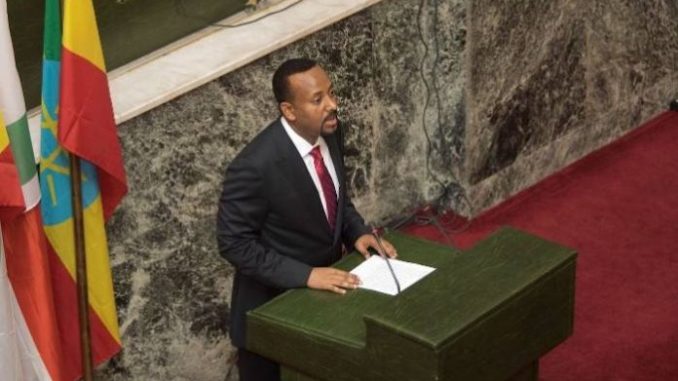
The government of Ethiopia has said it will release more than 304 prisoners, including 289 convicted on “terrorism” charges, according to state media.
The move is part of a raft of reforms pledged by authorities after violent unrest broke out three years ago, sparked by an urban development plan for the capital, Addis Ababa, that critics said would trigger land seizures in the surrounding Oromia region.
The demonstrations quickly spread to other parts of the country, with protesters demanding wider political freedom and equality, as well as an end to human rights abuses.
Those pardoned on Friday include three Kenyans, who were released following an agreement between the two countries to strengthen bilateral relations, according to a statement sent to state-affiliated Fana by Ethiopia’s attorney general.
More than 1,000 prisoners have been released or slated for release since Prime Minister Abiy Ahmed came to power in April.
Abiy took office after his predecessor, Hailemariam Desalegn, abruptly resigned amid widespread anti-government protests that claimed the lives of several hundred people, mainly in the restive Oromia and Amhara regions.
Among those freed in recent months are several senior opposition leaders accused of charges such as “terrorism” or incitement to topple the government.
One of them is Andargachew Tsige who was found guilty of “terrorism” and sentenced to death in absentia in 2009 over his role in the opposition group Ginbot 7.
The father of three was arrested during a stopover at a Yemen airport in June 2014 and taken to Ethiopia.
Last month, Ethiopia lifted its state of emergency and Abiy has been making numerous changes in a country considered highly repressive by rights groups
The East African state has also made moves towards repairing relations with rival and neighbour, Eritrea.